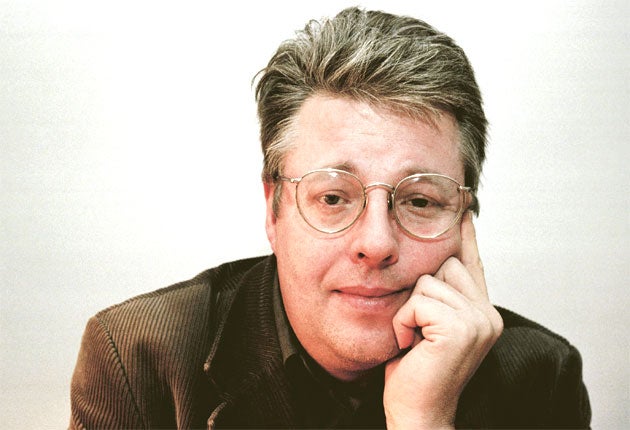Lost Stieg Larsson manuscripts found in Sweden

The good news for Stieg Larsson addicts: two unpublished manuscripts have been unearthed in his native Sweden. The bad news: they have nothing to do with the Millennium trilogy and, in any case, fans might never be able to read them.
The National Library of Sweden last night revealed that it was in possession of two science fiction stories, sent by a 17-year-old Larsson to a magazine in the 1970s in an attempt at making his publishing debut.
Unlike the labyrinthine Millennium novels, the teenage works, The Crystal Balls and The Flies, are not thought to run to more than five pages each.
In a letter accompanying his speculative submission to the Jules Verne magazine, Larsson described himself as "a 17-year-old guy from Umea in the north of Sweden with dreams of becoming an author and journalist".
The magazine abruptly crushed those dreams, rejecting his first tentative literary efforts.
Decades later, in 2007, the stories were donated to the library as part of a wider archive provided by the Jules Verne magazine. And there they gathered dust until yesterday, and the library's public revelation.
The big question now is whether these teenage stories will ever be seen by Larsson's ravenous public.
Larsson had a heart attack, aged 50, and died in 2004 – before the first installment of Lisbeth Salander's incredible tale, The Girl With the Dragon Tattoo, was published and before he could finish penning the full Millennium series, which was supposed to run to 10 books.
The author never wrote a will and as a result, under Swedish law, his estate – including the rights to his books – went to his father and brother and not his partner of more than 30 years, Eva Gabrielsson. (She does have possession of a laptop containing a partially written fourth book, which Larsson's family has attempted to purchase).
Public access to material in the archive of the Swedish National Library is decided on a case-by-case basis, depending on the content.
Magdalena Gram, the deputy national librarian of Sweden, told The Independent that the library would be getting in contact with Larsson's father and brother regarding the short stories. Publisher Eva Gedin, who edited the best-selling Millennium trilogy, said that she was unsure whether the new manuscripts would ever be published, but that there had been conversations about releasing other pieces of writing by Larsson.
"It is in the hands of the rights holders if they are interested in having them published," she said.
"We have discussed with his brother publishing articles from Expo [the Swedish magazine Larsson edited] and other magazines."
Ms Gedin recalled that Sweden's crime fiction sensation had been interested in becoming an author from an early age. "His father and mother gave him a typewriter when he was 14 years old," she said. "They had to borrow money actually to afford the typewriter, and he immediately started to write stories."
Larsson was a fan of science fiction as a youngster, she said, "[but] my personal view is that... if you consider his crime novels, I think what he wrote as a journalist in his magazine Expo is more connected to his fiction than maybe these early pieces."
Long-lost books
* An unfinished Graham Greene murder mystery, The Empty Chair, was discovered in the vaults of a Texas University archive last year. The manuscript, which the author wrote when he was 22, was subsequently serialised in an American literary magazine. It was written in 1926, the year in which Greene converted to Catholicism.
* An incomplete final novel by Vladimir Nabokov was saved from destruction after 30 years of deliberation by his son over whether it should be published. The Original of Laura was subsequently bought by Playboy – fairly appropriate for a work by an author whose best-known work is Lolita.
* The beginning of a joint work by CS Lewis and JRR Tolkien was discovered last year hidden in a manuscript book in the Bodleian Library in Oxford. A fragment of an obscure, scholarly book about the meaning of language, the authors had aimed to publish it in 1950.
Subscribe to Independent Premium to bookmark this article
Want to bookmark your favourite articles and stories to read or reference later? Start your Independent Premium subscription today.

Join our commenting forum
Join thought-provoking conversations, follow other Independent readers and see their replies